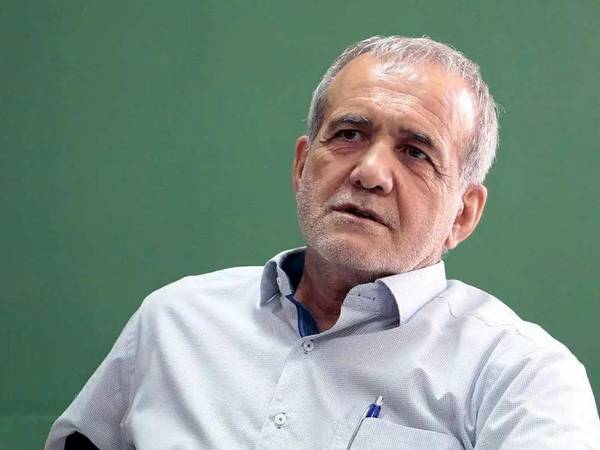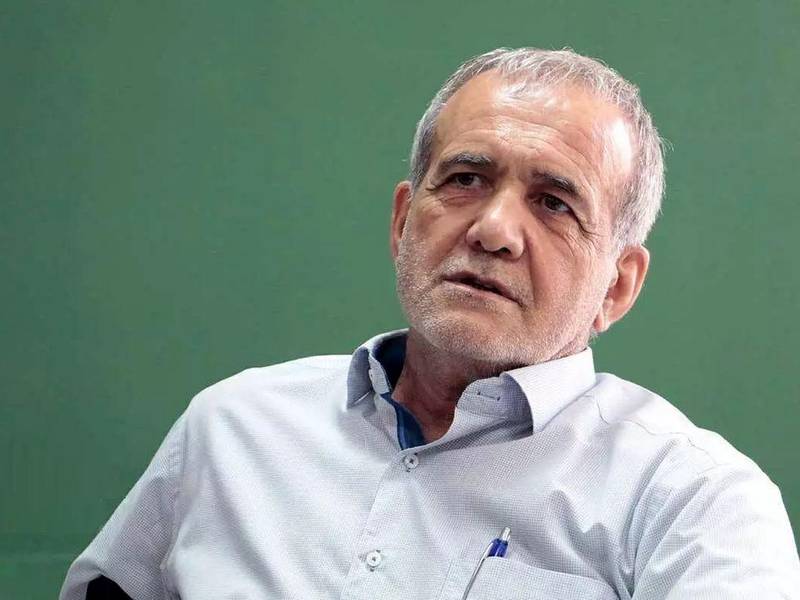Iran’s president-elect Masoud Pezeshkian reaffirmed his absolute allegiance to Supreme Leader Ali Khamenei on Friday, calling him the “guiding light” that the new Iranian administration would follow.
Since he won Iran’s presidential election earlier this month, Pezeshkian has been closely watched for hints of a potential ‘change’, domestically and toward the West. His latest words may have killed any such hope even before he names his cabinet.
“We do have the broad policies coming from His Greatness the Leader. I did say in our [presidential] debates that those policies are the guiding light of our path and define our goal,” Pezeshkian said in an exclusive interview with the website of the Supreme Leader’s office.
Despite widespread anticipation in Iran and abroad to see hints of any foreign policy changes, the new president did not touch the subject in the interview, which took place a few days before Pezeshkian’s inauguration, and was his first exposure to the media - if the website can be called a media outlet - since winning the vote.
Pezeshkian’s office canceled a customary press conference immediately after his victory, because he went to meet Khamenei. Amid a wave of speculations over his plans and appointments, he refrained from holding a press conference for three weeks.
Pezeshkian confirmed in his interview that he would name his cabinet only after consulting with Khamenei and obtaining his approval. Political and security profiles, including the intelligence and foreign ministers, are known to be picked by the Supreme Leader.
However, Pezeshkian seems to have taken it one step further, suggesting that he would take to Khamenei his long-list of “4-5 candidates for each post” and make the final decision accordingly.
Beyond the “broad policies” set by the Supreme Leader, Pezeshkian seems to have little to offer at this stage. Responding to a question about the economy, he said he had “no immediate solution” and had to consult the experts. “What is urgent right now is to get rid of the [political] disagreements.”
Pezehskian did hint at a gasoline price hike, a uniquely sensitive issue to millions of Iranians that caused widespread unrest in 2019, during which 1,500 citizens were killed, according to unofficial reports.
“We have an energy imbalance in the country. We’re spending $8 billion to buy gasoline [annually],” Pezeshkian said in his interview published on Khamenei’s website. “This means we are buying gasoline at around 30,000 or 40,000 tomans [50-70 US cents] per liter, and then selling it for 1,500 tomans [2 cents] per liter. How long can we continue doing this?”
Despite having one of the world’s biggest oil reserves, Iran has had to import gasoline to compensate for the soaring demand and stagnant production in the country’s aging refineries.
Any hike in gas price would be hugely unpopular and could lead to yet another round of protests in Iran, which leaves Pezeshkian in an unenviable position. The last hike also came under a ‘moderate’ administration – that of Hassan Rouhani.

